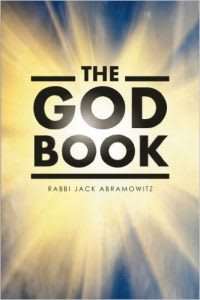23. Dreams and Visions
As we have already discussed, all the prophets other than Moshe received their prophecies in dreams and visions. We understand what dreams are but what are visions?
The Rambam describes a vision as an intense, dreadful feeling that washes over a prophet while awake. [II, 41] To support this, the Rambam cites the Book of Daniel (10:8-9): "I was left alone and I saw this great vision, and no strength remained in me... I heard the voice of his words. When I heard the voice of his words, I fell into a deep sleep on my face, with my face toward the ground." It was in this state that the angel delivered God's message. (The "his" in "the voice of his words" refers to the angel rather than to God, which is why we have not capitalized it.)
When a prophet received a prophecy, his five normal senses would cease to function while his "spirituality receptors" would kick into high gear. In was in this state that he might receive a vision, causing him to tremble all over, followed by the prophecy. We see this, for example, in the case of Avraham, while he was still known as Avram. Genesis 15:1 tells us that "the word of God came upon Avram in a vision...." In verse 12, we are told that "a deep sleep fell over Avram; a dread, a great darkness, fell upon him." Finally, in verse 13, "and He said to Avram...."
Sometimes a prophet says he received his message from an angel; other times he says that he heard from God. The Rambam clarifies that even when the prophet says he heard from God, the meaning is still that he heard from God through an angel. In either case, whenever a prophet says that he heard from God or an angel, it happened in a dream or a vision.
There are four ways a prophet might describe how his prophecy was received. (The Rambam gives several examples of each type; we will limit ourselves to one each.) The four ways are:
(1) He might say that he heard from an angel in a dream or a vision. An example of this is found in Genesis 31:11, "the angel of God said to me in a dream...."
(2) He might say that he heard from an angel without mentioning the dream or vision. An example of this is found in Genesis 22:15, "an angel of God called to Avraham from Heaven a second time...."
(3) He might not mention the angel, only stating that God spoke to him in a dream or a vision. An example is found in Genesis 15:1, "the word of God came upon Avram in a vision....
(4) He might only state that God spoke to him, without mentioning either the angel or having a dream or vision. This is the most common form, as found in Judges 7:2, "and God said to Gideon," among numerous other places.
According to the Rambam, the word "elohim" in such verses as Genesis 6:13 ("and elohim said to Noah...") and Genesis 35:1 ("and elohim said to him, your name is Yaakov...") refers to an angel. The proper noun "Elohim" (capitalized in English) refers to God, but the word can also be used as a common noun referring to "mighty ones," such as judges or angels. Accordingly, all prophecies are preceded by one of the four forms of description enumerated above but when the Torah tells us that "elohim" (meaning an angel) spoke to a certain person "in a dream of the night," that is not a prophecy. This just means that God took the opportunity to use a person's regular nightly dreams to turn his attention to some matter. Just as God can put ideas in our heads while we are awake, He might do likewise when we are asleep. This is the case with both Avimelech (Genesis 20:3) and Lavan (Genesis 31:24), each of whom was address by "elohim" in a "dream of the night."
One should not be bothered or confused that the Torah uses an expression suggesting that God spoke to a person when that person did not have an actual prophecy, as is the case with Avimelech and Lavan. In truth, the Torah does the same thing when a person receives a message from a prophet. For example, Rivka "went to inquire of God" in Genesis 25:22 and "God said to her" in verse 23. But Rivka did not receive a prophecy; she went to the yeshiva of Shem and Eiver, where she consulted with Eiver, who was a prophet. (Rashi cites a Midrash that says it was Shem. The Midrash also describes Rivka as receiving her message from an angel. This could refer to Shem or Eiver, as prophets are sometimes referred to as angels, the Hebrew word "malach" simply meaning a messenger. Alternately, it could refer to the angel that conveyed the message for Rivka from God to Shem or Eiver.)

